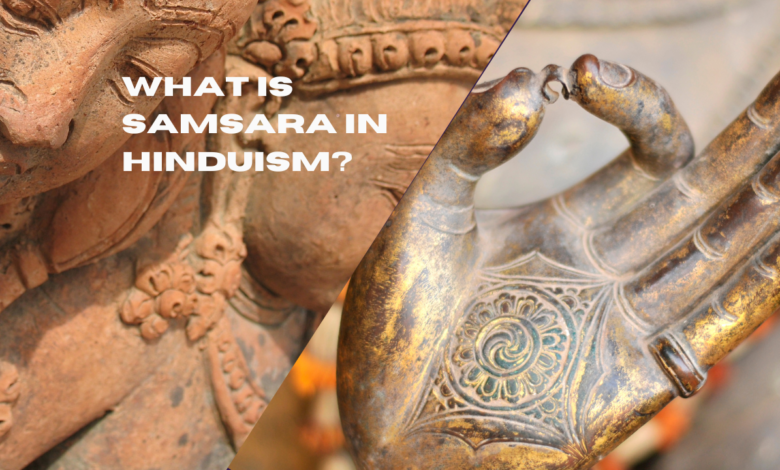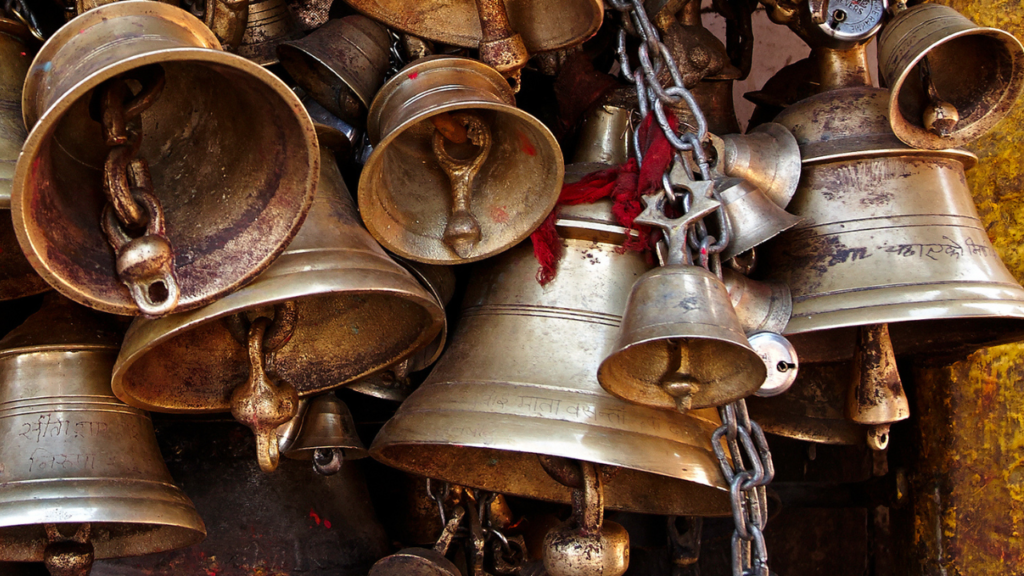What is Samsara in Hinduism?
Understanding the Cycle of Samsara in Hindu Philosophy

What is Samsara in Hinduism?
Samsara is the cycle of birth, death, and rebirth that is central to Hindu philosophy. It involves the reincarnation of the soul, or atman, in a continuous cycle based on the accumulation of karma.

Introduction
Samsara, a fundamental concept in Hinduism, is a cycle of birth, death, and rebirth that encompasses the soul’s journey through various lifetimes. It is one of the central tenets of Hindu philosophy and provides a framework for understanding the nature of existence, human suffering, and the ultimate goal of spiritual liberation. Samsara is a concept that has captivated the minds of scholars, philosophers, and practitioners of Hinduism for millennia, offering profound insights into the human condition and the pursuit of enlightenment.
The Cycle of Samsara:
At the heart of the concept of Samsara is the belief in the transmigration of the soul, or atman. Hindus believe that the atman is eternal and unchanging, and it exists independently of the physical body. When a person dies, the atman leaves the body and enters a new one in a continuous cycle of reincarnation. This cycle is driven by the accumulation of karma, the moral and ethical consequences of one’s actions.
The principle of karma plays a crucial role in Samsara. According to Hindu teachings, every action has consequences, and these consequences are carried over from one lifetime to the next. Good actions lead to positive karma, while bad actions result in negative karma. The accumulated karma from previous lifetimes influences the circumstances and experiences of an individual in their current life. It is the desire to escape the cycle of Samsara and attain moksha, or liberation, that motivates Hindus to lead virtuous lives, make ethical choices, and engage in spiritual practices.
Also check.
- What is Quran?
- What is Haram?
- Who is the Current Caliph of Islam?
- What is the Holy Book of Islam?
- What Is a Christian?
The Three Gunas:
In Hindu philosophy, the concept of Samsara is intimately connected to the idea of the three gunas, which are the three fundamental qualities or attributes that permeate all of existence. These gunas are sattva (goodness, purity, and illumination), rajas (passion, activity, and desire), and tamas (ignorance, darkness, and inertia). All living beings possess a unique combination of these gunas, which influence their thoughts, actions, and character.
It is believed that the gunas play a significant role in the cycle of Samsara. Attachment to worldly desires and the dominance of rajas and tamas lead to negative karma and contribute to the soul’s entanglement in the cycle of birth and death. To break free from Samsara and achieve moksha, individuals must cultivate sattva, which is characterized by wisdom, compassion, and selflessness. By transcending the influence of the gunas, one can move closer to spiritual liberation.
The Pursuit of Moksha:
Moksha, or liberation from the cycle of Samsara, is the ultimate goal of Hindu spirituality. It represents a state of eternal bliss, where the soul is no longer subject to birth and death. To attain moksha, individuals must gain a deep understanding of their true nature, the nature of the universe, and the interconnectedness of all things. This understanding is often achieved through spiritual practices, such as meditation, self-realization, and the study of sacred texts like the Bhagavad Gita and Upanishads.
Hinduism offers various paths to attain moksha, including bhakti yoga (the path of devotion), karma yoga (the path of selfless action), jnana yoga (the path of knowledge), and hatha yoga (the path of physical discipline). Each of these paths is designed to help individuals overcome their attachment to the material world, transcend the influence of the gunas, and ultimately break free from Samsara.
Conclusion
In conclusion, Samsara is a profound concept in Hinduism that provides a comprehensive framework for understanding the nature of existence, the consequences of our actions, and the pursuit of spiritual liberation. It teaches us that the cycle of birth and death is an inherent part of human existence, and the key to breaking free from this cycle lies in understanding and transcending the three gunas and accumulating positive karma. By seeking moksha through spiritual practices and self-realization, individuals can hope to achieve the ultimate goal of Hindu philosophy – liberation from the eternal cycle of Samsara.

FAQs
What is Samsara in Hinduism?
Samsara is the cycle of birth, death, and rebirth that is central to Hindu philosophy. It involves the reincarnation of the soul, or atman, in a continuous cycle based on the accumulation of karma.
How does Samsara work in Hinduism?
Samsara is driven by the principle of karma, where one’s actions in this life and previous lives determine their future circumstances and experiences in the cycle of rebirth.
What is the ultimate goal of Samsara in Hinduism?
The ultimate goal of Samsara is to achieve moksha, which is liberation from the cycle of birth and death. It represents a state of eternal bliss and oneness with the divine.
What role do the three gunas play in Samsara?
The three gunas—sattva, rajas, and tamas—influence an individual’s thoughts, actions, and character. Attachment to rajas and tamas can lead to negative karma and perpetuate the cycle of Samsara, while cultivating sattva is essential for spiritual progress.
How can one break free from Samsara in Hinduism?
To break free from Samsara, one must strive to transcend the influence of the gunas, accumulate positive karma through virtuous actions, and ultimately attain self-realization through spiritual practices.
What is the significance of understanding Samsara for Hindus?
Understanding Samsara is crucial for Hindus as it provides a framework for comprehending the nature of existence, the consequences of actions, and the path to spiritual growth and ultimate liberation.
Can everyone achieve moksha and escape Samsara in Hinduism?
According to Hindu beliefs, every individual has the potential to attain moksha, but the journey may take multiple lifetimes. The willingness to seek spiritual growth and make ethical choices plays a vital role in one’s progress toward liberation from Samsara.



